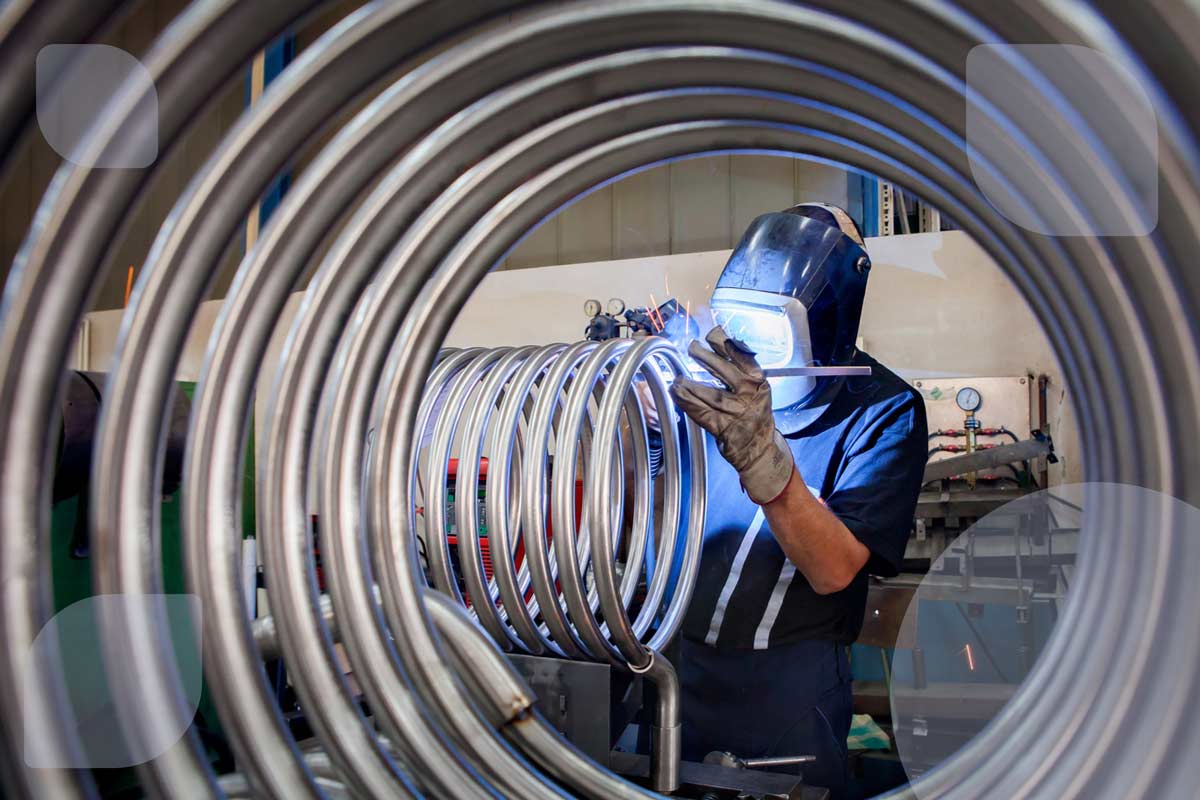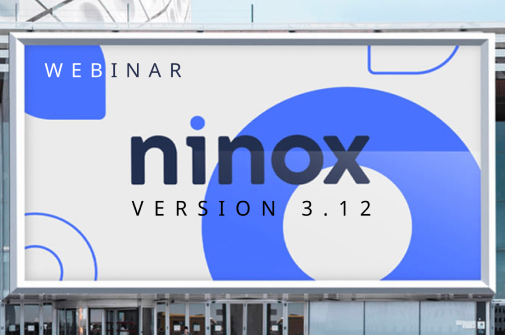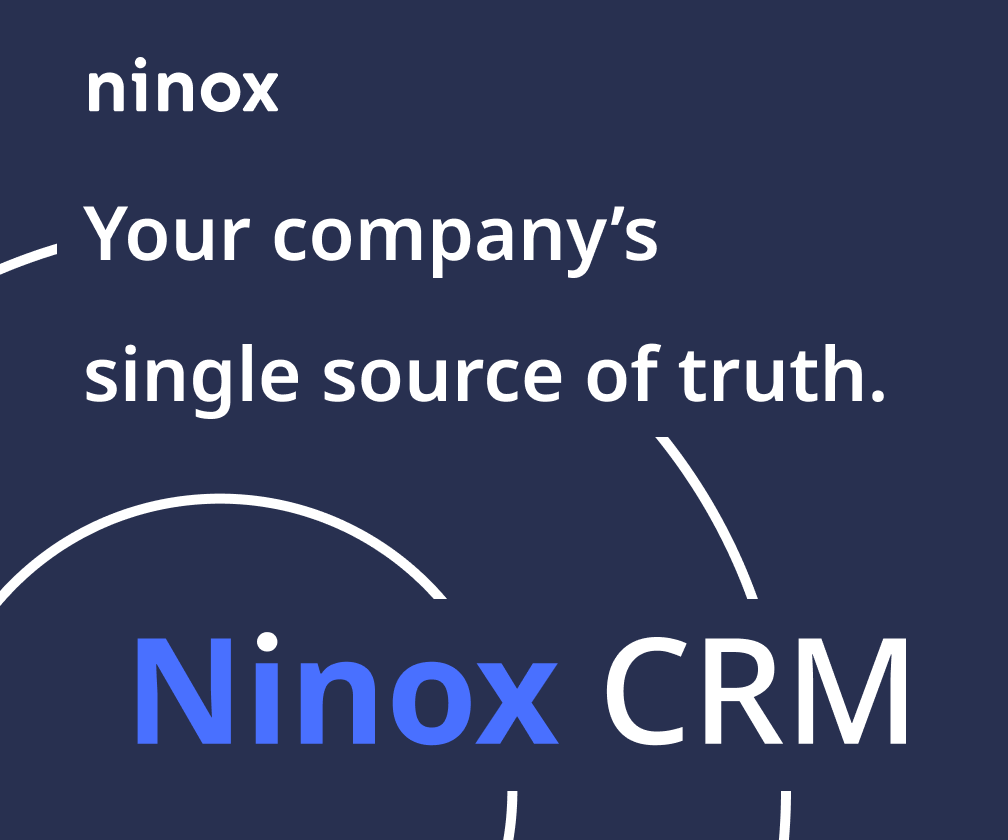Job planning in metal processing: This is how it's done with low code

Efficient job scheduling is a critical factor in the success of companies in the metalworking industry. But companies often face the challenge of coordinating processes with limited resources.
In this article, you'll learn why low-code technology offers the right solution approach, what aspects make the right software for metalworking companies, and how Ninox can help you implement just the right solution.
Challenges of digitization in manufacturing
To remain competitive, companies need to optimize their planning and processes, increase transparency and reduce costs. This is where ERP (Enterprise Resource Planning) and MES (Manufacturing Execution Systems) systems come into play.
Digitizing manufacturing processes in the metalworking industry brings many benefits, but also some challenges. One of them is order planning, which is often manual and time-consuming. Companies in the metalworking industry therefore need an MES system that not only maps the manufacturing processes, but also provides customer requirements and customer data and also supports orders and invoicing.
By integrating flexible systems, processes can be automated, optimized and made more effective. However, large industry solutions are often too complex and too expensive to adapt. Especially for small or medium-sized companies, classic ERP and MES systems are too monolithic: They do not offer the necessary specialization and flexibility. Without digital processes, however, it is also becoming increasingly difficult in manufacturing to respond to individual customer requirements and changes in the supply chain.
The use of low-code platforms such as Ninox as ERP and MES provides a remedy. With low-code, developers - and even non-developers! - can quickly and easily create applications tailored specifically to the needs of the metalworking industry. Automating job scheduling can lead to greater efficiency and productivity by reducing bottlenecks and optimally allocating resources. In addition, low-code also provides the ability to integrate and analyze data from multiple sources to enable better decision making.
The right software for the metal industry: flexible job preparation and maximum automation
The range of industries in metal processing is huge. This makes it particularly difficult to provide the right system for each individual company. The key requirements for an ERP system in the metal fabrication industry are:
- Flexibility: Jewelry manufacturers, bridge builders and vehicle manufacturers sometimes have very different demands on ERP software - and the process chain looks just as diverse. A particularly important requirement when looking for the right ERP system is therefore flexibility.
- Production control station and materials management: A production control station is a system used in the metalworking industry to coordinate and optimize manufacturing processes. The control station acts as a central control point for the entire production by monitoring and controlling all machines, equipment and processes in real time. At the same time, materials management plays a key element. In the manufacturing industry, companies always need an overview of all resources, which is why data exchange between the MES system and ERP is of central importance.
- Project and customer management: Order processing is another key point for metal manufacturing companies. After all, most of these companies operate on a project basis. This means that orders and customer data must be recorded and assigned to the respective project.
- Invoicing: Once a project is completed, invoices must be issued to customers. By incorporating a financial module into the ERP system, project completion and invoicing can be fully automated.
Ninox as an MES system ensures greater efficiency
Numerous projects show how the low-code platform Ninox is used as ERP and MES in the metalworking industry.
The metal processing company of Reinhold Koch GmbH has found the perfect solution for itself: While all planning and control tasks of the production are implemented in the MES, Ninox helps to manage customer data, orders and material stocks. As soon as a production order is created in Ninox, it is automatically transferred to production - and likewise, the data flows back into Ninox so that all customers can always query the current status of their order.
Ninox users are able to replace manual Excel processes, monitor order preparation and optimize detailed planning in production - as you can see in this webinar recording with Josef Kudlacek, Managing Director of KMU Cloud Software, Ninox Premium Partner, and Melanie Schink, Managing Director of CONZELLA Präzisionswerkzeuge:
Conclusion: Efficient order planning by enhancing ERP with low-code
Integrating MES, ERP and CRM using low-code development tools such as Ninox offers the metalworking industry the opportunity to make their order planning more efficient. Proper implementation not only leads to significant business process improvement, but ultimately contributes to higher customer satisfaction.
Create lean processes with Ninox: Learn how you can automate processes quickly and easily with a flexible, customized MES solution based on Ninox, using examples from everyday manufacturing.






